Selected research topics
intro
A-Dynamics and statistical modeling in biology.
This topic deals with the study of microscopic processes that yield the orchestrated and fine tuned functioning of the cell. The research carried on deal with the analysis of transport in crowded conditions in a complex environment, the study of molecular transcripts and proteins, to e.g. shed light on fundamental processes implicated in pathological states. This is an interdisciplinary field of research where biology, physics and mathematics are mutually inter-tangled and play a key role.
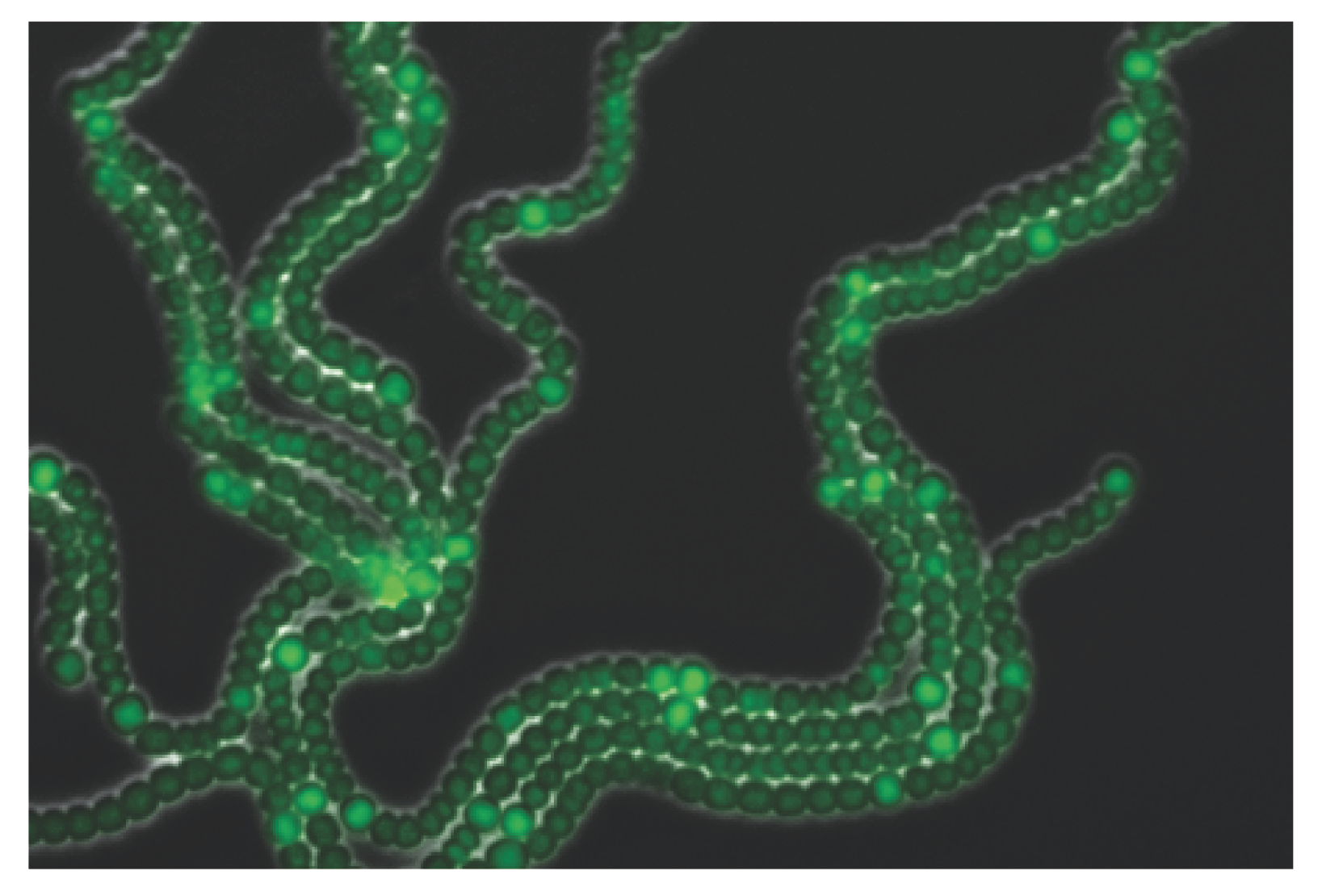
Pattern in Anabaena [R. Arbel-Goren et al. Life 8 (2018)].
B- Out-of-equilibrium dynamics, synchronization and control.
This is the field of information and communication technologies (ICT), which sits at the core of Information Engineering. Modeling approaches move from the thorough characterization of individual entities, to eventually address the study of extended systems made of a large sea of interacting units. Studies aim at unraveling emerging collective behaviors, either complex or chaotic, as those revenant to e.g. non linear optical devices, neuronal models, traffic handling in communication networks. The theory of networks and machine learning are among the strategic topics which are currently being developed within the Center.
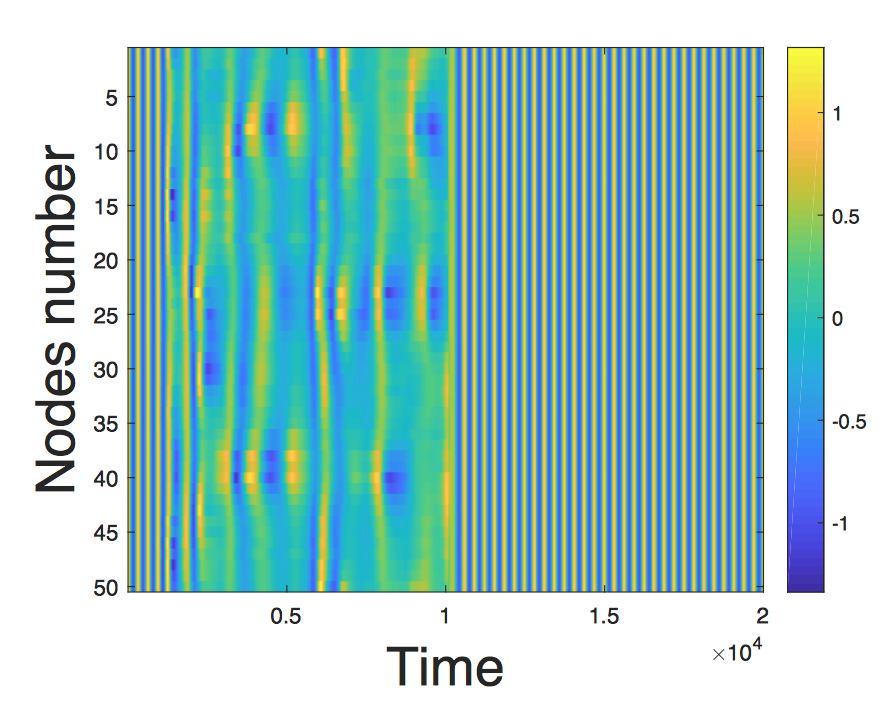
Stabilizing a network of Stuart-Landau oscillators [Pereti et. al. Chaos, Solitons and Fractals 133 (2020)].
C-Models and methods to econometric and financial time-series analysis.
Economy is the reference field, and studies are targeted to developing suitable mathematical model for handling financial data. Non linear methods are typically employed, of both deterministic and stochastic inspiration, for time-series analysis.
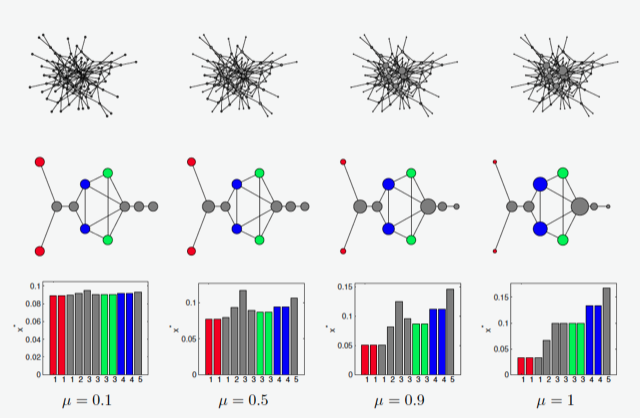
Biased random walks on networks [G. Cencetti et al. Phys. Rev. E 98 (2018)].
D- Dynamical processes for environmental studies.
This is a vast field of investigation with important links to environmental sciences and engineering. Worth mentioning is the application of mathematical modeling to food webs and ecology, the study of evolution and interaction patterns, fluid dynamics and energy management and the handling of local processes as the human scale, as e.g. mobility and traffic.
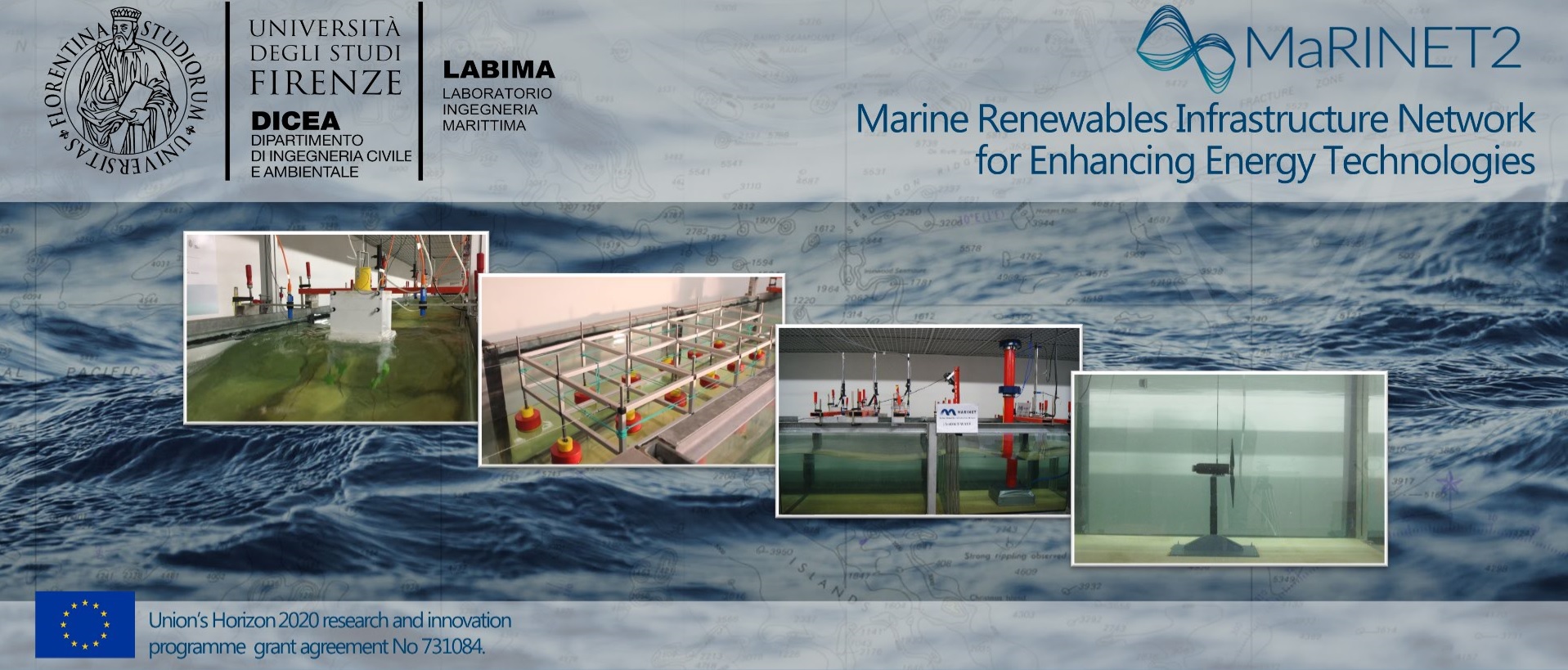
Experiments at Labima, laboratory for the study of sea renewable energies.
E-Social dynamics and cognitive processes.
This topic deals with the brain, a complex entity by definition. The study of the brain functioning requires a synergistic approach which moves from neuroscience to eventually embrace fields as psychology, physics, applied mathematics and informatics. Recent work carried out at the CSDC led to the development of an inverse scheme which enables one to recover structural information about the inspected the neuronal network, starting from available experiments. Modeling neuronal network allows to shed light on the process implicated in the encoding/decoding of complex information, the process of learning and synchronization, as well as the development of perceptions.
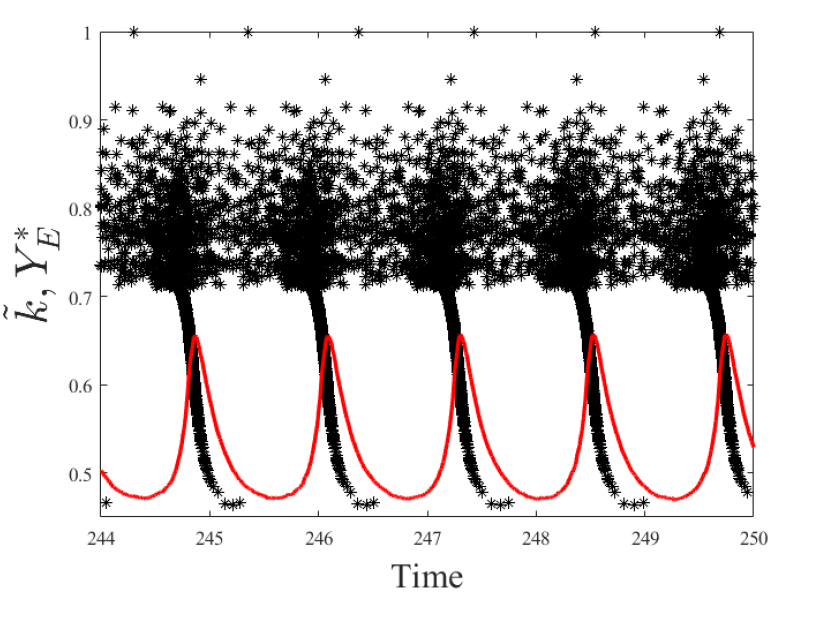
Ruster plot of excitatory neurons in a LIF model.


